When ten-year-old Enaiatollah Akbari’s small village in Afghanistan falls prey to Taliban rule in early 2000, his mother shepherds the boy across the border into Pakistan but has to leave him there all alone to fend for himself. Thus begins Enaiat’s remarkable and often punishing five-year ordeal, which takes him through Iran, Turkey, and Greece before he seeks political asylum in Italy at the age of fifteen. Along the way, Enaiat endures the crippling physical and emotional agony of dangerous border crossings, trekking across bitterly cold mountain pathways for days on end or being stuffed into the false bottom of a truck. But not everyone is as resourceful, resilient, or lucky as Enaiat, and there are many heart-wrenching casualties along the way. Based on Enaiat’s close collaboration with Italian novelist Fabio Geda and expertly rendered in English by an award- winning translator, this novel reconstructs the young boy’s memories, perfectly preserving the childlike perspective and rhythms of an intimate oral history. Told with humor and humanity, In the Sea There Are Crocodiles brilliantly captures Enaiat’s moving and engaging voice and lends urgency to an epic story of hope and survival.
Refugees
Now Is the Time for Running
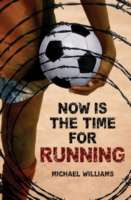
Just down the road from their families, Deo and his friends play soccer in the dusty fields of Zimbabwe, cheered on by Deo’s older brother, Innocent. It is a day like any other . . . until the soldiers arrive and Deo and Innocent are forced to run for their lives, fleeing the wreckage of their village for the distant promise of safe haven. Along the way, they face the prejudice and poverty that await refugees everywhere, and must rely on the kindness of people they meet to make it through. But when tragedy strikes, Deo’s love of soccer is all he has left. Can he use that gift to find hope once more? Relevant, timely, and accesibly written, Now Is the Time For Running is a staggering story of survival that follows Deo and his mentally handicapped older brother on a transformative journey that will stick with readers long after the last page.
See the review at WOW Review, Volume IV, Issue 4
Inside Out And Back Again
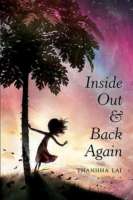
No one would believe me but at times I would choose wartime in Saigon over peacetime in Alabama. For all the ten years of her life, HÀ has only known Saigon: the thrills of its markets, the joy of its traditions, the warmth of her friends close by . . . and the beauty of her very own papaya tree. But now the Vietnam War has reached her home. HÀ and her family are forced to flee as Saigon falls, and they board a ship headed toward hope. In America, HÀ discovers the foreign world of Alabama: the coldness of its strangers, the dullness of its food, the strange shape of its landscape . . . and the strength of her very own family. This is the moving story of one girl’s year of change, dreams, grief, and healing as she journeys from one country to another, one life to the next.
See the review at WOW Review, Volume 4, Issue 3
This book has been included in WOW’s Language and Learning: Children’s and Young Adult Fiction Booklist. For our current list, visit our Booklist page under Resources in the green navigation bar.
The Deserter
To save the members of his tribe from being devoured by the beasts that share their primitive world, Stopmouth must make his way to the mysterious, futuristic world above, even though a virus is destroying the Upstairs and driving millions of refugees to seek shelter below.
The Lost Boys of Sudan

This book presents accounts of narrow escapes executed by oppressed individuals and groups while illuminating social issues and the historical background that led to wars in Sudan and the orphaned refugees known as the ‘Lost Boys’.
The Khmer Rouge
This book presents accounts of narrow escapes executed by oppressed individuals and groups while illuminating social issues and the historical background that led to the atrocities committed in Cambodia’s “killing fields” by the Khmer Rouge.
Mohammed’s Journey: A Refugee Diary
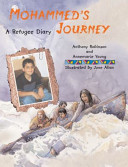
After his home was invaded by Saddam Hussein’s soldiers, a young Kurdish boy named Mohammed and his mother take on a daring quest to flee Iraq; risking their lives to travel through several countries in order to reach freedom in England.
Refugee Boy
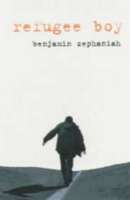
Fourteen-year-old Alem Kelo adjusts to life as a foster child seeking asylum in London, while his Eritrean mother and Ethiopian father work for peace between their homelands in Africa.
One Day We Had to Run! Refugee Children Tell Their Stories in Words and Paintings
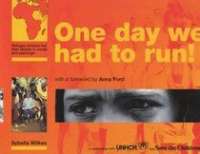
In an anthology of words and drawings compiled by a United Nations relief worker, refugee children from Somalia, the Sudan, and Ethiopia share their feelings about their loss of their homes and their families.
The Whispering Cloth: A Refugee’s Story
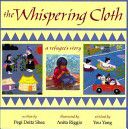
A young Hmong girl in a Thai refugee camp in the mid-1970s finds the story within herself to create her own pa’ndau.
